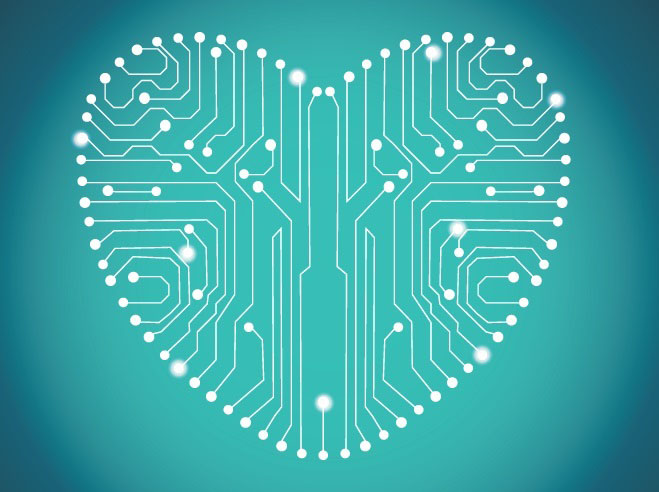Your heart is only about the size of your fist, but this small organ packs a big punch. Every day it beats 100,000 times, pumping blood to every part of the body through a network of vessels.
This blood delivers oxygen and nutrients to the body’s tissues and carries away waste products, which is necessary to sustain life. In other words, your heart keeps you alive.
The heart is an extraordinarily complex organ. To help understand how it works, think of a house.
Your heart is only about the size of your fist, but this small organ packs a big punch. Every day it beats 100,000 times, pumping blood to every part of the body through a network of vessels.
This blood delivers oxygen and nutrients to the body’s tissues and carries away waste products, which is necessary to sustain life. In other words, your heart keeps you alive.
The heart is an extraordinarily complex organ. To help understand how it works, think of a house.
Like a house, the heart has both plumbing and electrical systems that keep it running. The heart’s pumping action, or heartbeat, is controlled by the electrical system.
When that system isn’t working properly, it can cause an irregular heartbeat, or arrhythmia.
Arrhythmias can cause significant symptoms, heart failure and can even be life-threatening.
Electrophysiologists, or heart rhythm specialists, are cardiologists who specialize in treating heart rhythm problems. Cardiologists can receive additional training in a certified electrophysiology training program.
Once they are board certified and hold appropriate qualifications, they are then recognized by the Heart Rhythm Society of America as a “Fellow of Heart Rhythm Society” (FHRS).
Treating heart rhythm problems
Symptoms of arrhythmia can include feeling heart palpitations, fluttering, skipped beats, dizziness, fatigue and lack of energy. If you have such symptoms or if you feel that your heart rhythm is irregular, ask your doctor about how you can see a heart rhythm specialist.
Arrhythmias are serious and common disorders.
According to Dr. Kamal Kotak, an electrophysiologist affiliated with Sharp Grossmont Hospital, the consequences of untreated disorders are serious, including stroke and heart failure.
If you are experiencing symptoms of irregular heartbeat, address it with your doctor immediately.
Once referred, the first step is to see what is happening with the heart rhythm at the time of the symptoms.
An electrophysiologist may recommend wearing an EKG monitor for a day or sometimes for a few weeks. They will usually perform an ultrasound of the heart (also known as an echocardiogram) to see the structure and function of the heart.
Additional testing may be needed depending on the nature of the arrhythmia.
Some arrhythmias can be treated with medication; however, the most effective treatment for the majority of arrhythmias is a procedure called ablation.
Ablation is a safe and effective procedure, where an electrophysiologist targets the actual site of abnormal electricity inside the heart.
Recovery is quick and most patients go home the same day. The procedure is also minimally invasive, meaning no cuts or stitches are needed.
“With technological advancements, we now have safe, effective and minimally invasive therapies available that can significantly improve quality of life without worrying about medications and their side effects,” says Kotak. “At Sharp Grossmont Hospital, our state-of-the-art cardiovascular center is equipped with the most advanced technology to treat arrhythmias.”













